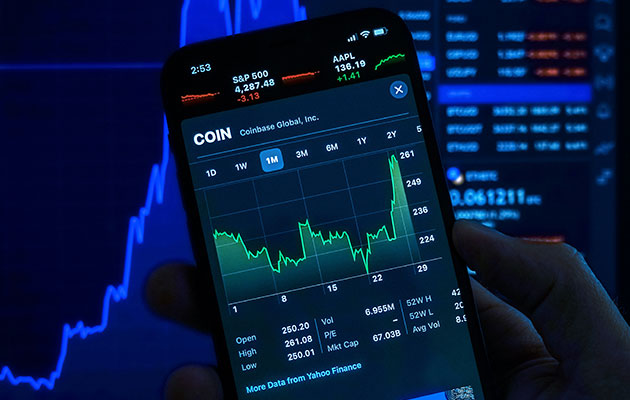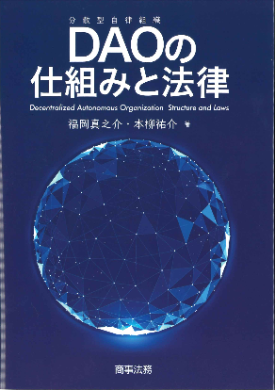-
Articles
Overview of Non-Fungible Tokens from a Regulatory Perspective
1. Brief Introduction on Non-Fungible Tokens
Over recent years, NFTs have grown in popularity to become the latest digital collectibles in today’s entertainment, sports, art, esports and gaming industries. Non-Fungible Tokens (“NFTs”) are best defined as a type of digital asset existing on a blockchain representing ownership in a digital product. A key feature that distinguishes NFTs from other digital tokens is that it represents a one-of-a-kind item existing in the digital world. In other words, you cannot simply make multiple copies of a single NFT as each NFT is unique. For example, a rare original arcade game console is non-fungible. Other examples include artwork, photos, videos, GIFS, music or in-game items (such as an avatar or a rare gaming asset).
The creation of NFTs has created a market where digital football trading cards, music albums and clips of NBA basketball plays in the form of NFTs are purchased and sold between digital artists and buyers on various NFT marketplaces or platforms, without the need of an intermediary. Furthermore, NFTs serve as an alternative channel for artists and digital content creators to monetise their work as they receive royalties each time a buyer sells the NFT representing their work to somebody else. In order to make a purchase, the buyer will need to use cryptocurrency approved by the particular marketplace (usually in the form of Ethereum as most NFTs are Ethereum-based) as payment.
One of the most defining features of NFTs is that they are generally one of a kind, meaning that the buyer of an NFT receives exclusive ownership rights (i.e. NFTs can only have one owner at any given time), and that NFTs are not equal to one another in value and therefore cannot be exchanged with each other unlike other types of digital assets (i.e. NFTs are non-fungible).
However, despite the hype surrounding the growing demand for NFTs, one of the main issues surrounding NFTs is the issue of its legality and its role in the market place.
2. Regulations on NFTs from a Thai Law Perspective
The Securities and Exchange Commission of Thailand (the “SEC”) regulates the issuance and trading of digital assets on Thai exchange platforms. Given the novelty of NFTs, there are very few legal frameworks that specifically regulate this type of digital asset.
Digital assets are subject to the regulations of the Emergency Decree on Digital Asset Business 2018 (the “Emergency Decree”), which sets out the conditions on the issuance and offering of digital tokens and the operation of digital asset businesses; and also to the Notification of the SEC No. Kor Thor 19/2561 Re: Rules, Conditions and Procedures for Undertaking Digital Asset Business, which prescribes the conditions imposed on digital asset operators in relation to the execution of their duties in the undertaking of their businesses.
Under the Emergency Decree, a digital asset refers to a cryptocurrency and digital token.1 The definitions of cryptocurrency and digital token are set out below:
- “Cryptocurrency” means an electronic data unit created on an electronic system or network, with the purpose of being used as a medium of exchange for the acquisition of goods, services or any other rights, or the exchange of digital assets, and shall include any other electronic data units as specified in the notification of the SEC; and
- “Digital token” means an electronic data unit created on an electronic system or network for the purpose of: (1) specifying the right of a person to participate in an investment in any project or business; (2) specifying the right of a person to acquire specific goods, specific service or any other right under an agreement between the issuer and the holder, and shall include any other electronic data units of right as specified in the notification of the SEC2
In this respect, as NFTs represent ownership or a right in a digital product, therefore they are likely to fall under the scope of a digital token as defined above.
On 11 June 2021, the Notification of the Securities and Exchange Commission No. Kor Thor. 18/2564 Re: Rules, Conditions and Procedures for Undertaking Digital Asset Businesses (No. 11) (the “Notification”) was published in the Government Gazette, and came into effect as of such publication date without retrospective effect.
Under the Notification, the SEC prohibits digital asset exchange platforms from trading digital tokens which contain any of the following characteristics:
- Meme token: having no clear objective, substance or underlying value, and whose price is based on social media trends;
- Fan token: tokenised by the fame of social media influencers;
- NFT: a digital creation to declare ownership or grant of right in an object or specific right. It is unique and not interchangeable with digital tokens of the same category and type at an equal amount; and<
- Digital tokens which are utilised in a blockchain transaction and issued by digital asset exchanges or related persons.
It should be noted that although the prohibition will not have any retroactive effect on tokens that are already existing in the market (i.e. tokens which have been listed) prior to the publication date of the Notification, the SEC has not however clarified whether or not existing tokens will be subject to stricter regulations.
The Notification further requires digital asset exchanges to impose the requirement that the digital token issuer (who may be the exchange itself or a related person) must comply with the white paper and relevant rules, whereby non-compliance may result in the delisting of such digital token from the exchange.
Furthermore, while the aforementioned prohibition by the SEC expressly prohibits the trading of such digital assets on digital asset exchange platforms, it remains unclear as to whether or not the prohibition extends to the issuance of such digital assets themselves. At the moment, the SEC has not issued any notifications or rulings to clarify this issue.
Nonetheless, the ban on the listing or trading of NFTs and the other digital tokens mentioned above only applies to licensed Thai-based digital asset exchange platforms. In this respect, the trading of such digital tokens may be conducted on alternative exchange platforms that are located outside of Thailand’s jurisdiction.
Due to the absence of a clear regulatory framework to govern NFTs in Thailand, it appears that the best solution for the time being is for all relevant market participants to standby and monitor new regulations published by the SEC to clarify its position on the aforementioned issues arising from the lack of regulations.
3. Regulation of NFTs in Other Jurisdictions: Singapore in Focus
Although there are currently no specific laws to regulate NFTs in Singapore, depending on the characteristics and purpose of the specific token, such token may fall under an existing branch of law and be subject to such regulatory regime. In this respect, the Monetary Authority of Singapore (the “MAS”) oversees the regulation and industry compliance with statutes relating to monetary policy, securities, banking and finance, and insurance.
With regard to the law governing matters relating to currency; digital tokens and cryptocurrency are not recognised as a form of legal tender under the Currency Act (Cap. 69) (CA) of Singapore (the “Currency Act”) and are therefore not subject to regulations set out by the MAS under such Currency Act.3
There is also a general consensus that the Payment Services Act 2019 of Singapore (the “PSA”), which regulates cryptocurrency service providers and digital payment tokens, does not apply to NFTs due to the non-fungible nature of NFTs - which only allows an exchange for specific goods. Under the PSA, tokens which fall under the scope of “limited purpose digital payment tokens” are exempted from the application of the PSA4, whereby the definition of a “limited purpose digital payment token” is as follows:5
“Any non‑monetary customer loyalty or reward point(s), any in‑game asset(s) or any similar digital representation of value that:
- (a) cannot be returned to its issuer, transferred or sold in exchange for money; and
- (b) may only be used:
- in the case of non‑monetary customer loyalty or reward point(s) - for the payment or part payment of, or in exchange for, goods or services, or both, provided by its issuer or any merchant specified by its issuer; or
- in the case of an in‑game asset - for the payment of, or in exchange for, virtual objects or virtual services within an online game, or any similar thing within, which is part of or in relation to, an online game”.
Therefore, based on the definition provided above, it is likely that NFTs may fall within the scope of limited purpose digital payment tokens, which are exempted from the application of the PSA.
Furthermore, NFTs are also not recognised as an approved mode of payment for goods and services, which means that they are not likely to fall within the definition of “digital payment tokens” regulated under the PSA. In this respect, the definition of a “digital payment token” is as follows:
- “Any digital representation of value that is expressed as a unit, not denominated in any currency or pegged to any currency, intended to be a medium of exchange accepted by the public as payment, and which can be transferred, stored or traded electronically”.6
In relation to the law on securities, the offer or issuance of digital tokens may be regulated by the MAS provided that such tokens constitute “capital markets products” as defined under the Securities and Futures Act (Cap. 289) of Singapore (the “SFA”).7 In this respect, where a digital token is determined to be a type of capital markets product due to its characteristics or purpose, the offering of such digital token shall be subject to the rules on the offering of securities and the licensing requirements for dealing in securities.
However, in the absence of any specific regulation(s) or ruling(s) by the competent authority on the legal status of NFTs, it remains uncertain as to whether NFTs would be regulated under any of the aforementioned laws and regulations. Therefore, similar to Thailand, it remains to be seen how NFTs will be regulated under the laws of Singapore.
4. Uncertain Status
Despite the emerging markets for NFTs, it appears that most jurisdictions do not have appropriate legislation in place that are specifically applicable to NFTs. Nonetheless, NFTs may be subject to the application of other existing regulations, depending on their characteristics, purpose and the activities performed in respect of such tokens. As regulatory regimes may vary significantly across jurisdictions, it is advisable to analyse the regulatory position in each jurisdiction where the specific NFT is issued and traded in order to be well informed of the various conditions and rights attached to an NFT.
- 1 Section 3 of the Emergency Decree on Digital Asset Business 2018.
- 2 Section 3 of the Emergency Decree on Digital Asset Business 2018.
- 3 Sections 2 and 13 of the Currency Act (Cap. 69) (CA) of Singapore.
- 4 Sections 2 (l) and 3 of the First Schedule of the Payment Services Act 2019 of Singapore.
- 5 Section 3 of the First Schedule of the Payment Services Act 2019 of Singapore.
- 6 Section 2 of the Payment Services Act 2019 of Singapore.
- 7 Section 2(1) of the Securities and Futures Act (Cap. 289) of Singapore states that: “’capital markets products’ include any securities (such as shares, debentures and units in a business trust), units in a collective investment scheme, derivatives contracts (such as derivatives of shares, debentures and units in a business trust), spot foreign exchange contracts for the purposes of leveraged foreign exchange trading, and such other products as MAS may prescribe as capital markets products”.
This is intended merely to provide a regulatory overview and not to be comprehensive, nor to provide legal advice. Should you have any questions on this or on other areas of law, please do not hesitate to contact any of the authors.





